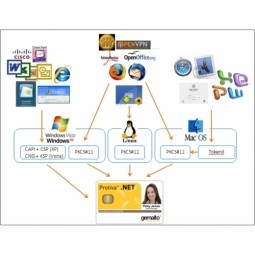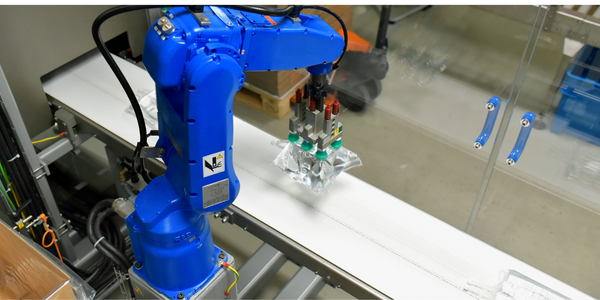下载PDF
Integrating the Custom Solutions of a Technology Powerhouse
技术
- 平台即服务 (PaaS) - 数据管理平台
适用行业
- 生命科学
适用功能
- 产品研发
- 质量保证
用例
- 预测性维护
服务
- 软件设计与工程服务
- 系统集成
挑战
Zymergen, an industrial biotechnology company, was facing challenges with its custom software systems. The company had many siloed pieces of custom software, making it difficult for scientists to enter and extract data. The strain optimization and fermentation & production teams couldn’t share complete experimental context due to the disparate systems. Moreover, Zymergen’s systems couldn’t scale with their rapidly growing company. The company needed a solution that could integrate their custom tools and provide a central platform for data entry and extraction.
关于客户
Zymergen is an industrial biotechnology company that engineers microbes to produce high-value commercial molecules. The company employs many custom software systems and algorithms that allow their scientists to push the boundaries of strain engineering. Zymergen's work involves a lot of data entry and extraction, and the company was using multiple siloed pieces of custom software for this purpose. The company's strain optimization and fermentation & production teams were unable to share complete experimental context due to the disparate systems. Furthermore, Zymergen's systems were not scalable enough to keep up with the company's rapid growth.
解决方案
Zymergen adopted Benchling as a central platform to unite their custom tools. Proprietary algorithms, instruments, and niche software all integrated into Benchling. The company was able to integrate custom sequence analysis algorithms with Benchling, eliminating data import/export. By integrating automated data capture across plate groups, Zymergen was able to populate notebook entries with data in real-time. With centralized functional data, analysis, and records, Zymergen was able to generate decision-quality results at a competitive speed. Benchling's permissions features intelligently restricted data access, allowing more of their clients to share classified data.
运营影响
数量效益
相关案例.

Case Study
Corporate Identity Solution Adds Convenience to Beckman Coulter
Beckman Coulter wanted to implement a single factor solution for physical and remote logical access to corporate network. Bechman Coulter's users were carrying smart card badges for doors, but also needed a one-time password token to access to our corporate network when they were not in the office. They wanted to simplify the process.

Case Study
Embracing Business Success in Real Time
· Increase control over growing Big Data to improve business decisions · Manage data for 28,000 biotechnology stockkeeping units in the fields of microbiology, molecular biology, animal cell cultures, plant tissue cultures, and lab ware for laboratory chemicals · Accelerate report generation and analysis with real-time data

Case Study
Flow Robotics: Scaling Up Production and Accelerating Product Development with IoT
Flow Robotics, a Danish manufacturer, developed flowbot™ ONE pipetting robots to alleviate the strain on bioanalysts in life-science laboratories and hospitals across Europe. These robots were designed to automate part of the testing process, speeding up the time it takes to produce results and reducing pressure on staff. However, the company faced challenges in scaling up production and accelerating product development. High workloads and physically challenging conditions have long been an issue for laboratory professionals. Flow Robotics estimates that around half of medical lab technicians carry out the same arm movements for at least a quarter of their working day. The American Society for Clinical Pathology reported that 85% of laboratory professionals feel burnt out; 36% struggle with inadequate staffing; and 32% face a heavy workload and pressure to complete all testing on time.

Case Study
Revolutionizing Aerospace Industry with 3D Printing: A 63% Lighter Titanium Part
GE Aviation, a renowned name in the aerospace industry, recognized the potential of 3D printing technology in transforming the sector. The primary challenge was to reduce the weight of the aerospace parts, which would directly impact the fuel costs. A lighter airplane would mean lower fuel consumption, leading to cost savings and a smaller carbon footprint. However, achieving this weight reduction without compromising the strength and functionality of the parts was a significant challenge. Traditional manufacturing methods were not able to provide the desired weight reduction while maintaining the required stiffness and strength of the parts. The challenge was to find a solution that could create strong, light, and functional aerospace parts.
Case Study
Material Intelligence at Ethicon: Sustaining Medical Device Manufacturability and Improving Patient Care
Ethicon, a world-class medical devices company, faced several challenges in its operations. The rapid selection of manufacturing materials compliant in global markets was critical to assure patients, practitioners, and purchasing organizations of the biocompatibility of their medical devices. Ensuring supply chain continuity and minimizing risks of obsolescence for medical devices due to regulatory changes were also crucial in meeting Ethicon’s ongoing commitment to maintaining patient care. Furthermore, the engineers at Ethicon were developing the next generation of medical devices and needed to access historical material data to accelerate new product development. The process of centralizing and digitalizing its materials information was a significant challenge that Ethicon needed to overcome.
Case Study
IWT's Transformation: Customizing with Efficiency in IoT
IWT, a company specializing in the design, manufacture, and installation of washing systems for the life sciences and pharmaceutical industries, faced a significant challenge in managing its wide product portfolio. The company manufactures 45 different models, 60% of which are customized to some degree. This high level of customization, combined with limited production quantities, necessitated a controlled process for managing the release of engineering changes. The goal was to achieve efficiency, reduce process time, and better coordinate production throughout the organization. The need for strict compliance in heavily regulated industries further complicated the situation. IWT's existing PLM journey with Dassault Systèmes’ SOLIDWORKS for 3D CAD and Enovia for managing CAD data and Bills of Materials (BOMs) was proving inadequate. The system had limited part classification, no workflow, and no tool to ensure data consistency. The management of non-CAD documents was also a challenge, with information often difficult to find and access.




